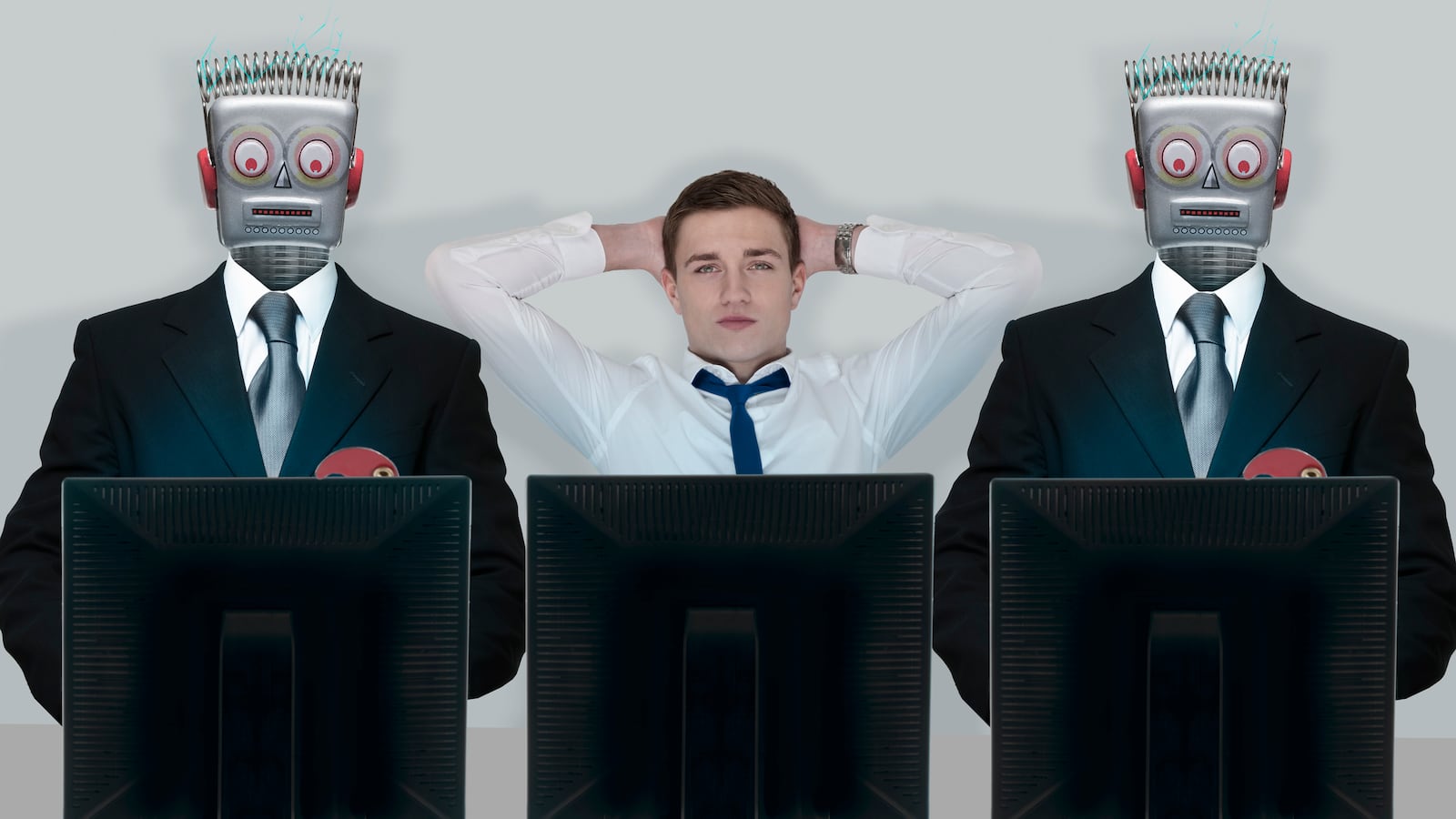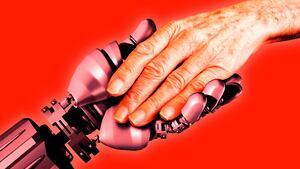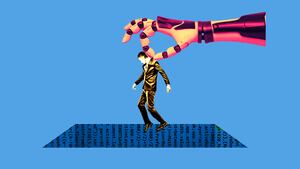From AI chatbots that help developers with coding, to the robotic arms assisting with packing your Amazon orders, the bots are becoming more and more commonplace in many different jobs. While this type of automation promises to make us more efficient (and cut down on the pesky costs of hiring actual humans), a new study suggests that it might actually be posing a danger too—though probably not in the way you think.
Researchers from the Technical University of Berlin in Germany published a paper Wednesday in the journal Frontiers in Robotics and AI which found evidence that working alongside robots might make humans much lazier in their own work. This technology could even result in unintentional carelessness and a decline in work quality—opening the doors to potential safety issues as well.
“Teamwork is a mixed blessing,” first author Dietlind Helene Cymek, a human factors researcher at TU Berlin, said in a statement. “Working together can motivate people to perform well but it can also lead to a loss of motivation because the individual contribution is not as visible. We were interested in whether we could also find such motivational effects when the team partner is a robot.”
The study recruited 42 participants who were all provided images of circuit boards and tasked with identifying errors in the boards. However, half of the participants were told that the boards they were looking at had already been inspected by a robot called Panda. Both groups were then asked to rate their effort in a survey.
While both groups spent roughly the same amount of time on the task and rated their effort and performance similarly, the Panda group made more errors and identified fewer defects than the other group. This is despite the fact that both groups said that they paid the same amount of attention to the task.
The authors say this could be due to the fact that the participants working with Panda mentally engaged with the task less since they knew they could just rely on the robot to catch any errors. It’s the same effect that might happen when you’re tasked to do a group project at work or in school—and one person does all the work while everyone else phones it in because they know it’s taken care of.
In a lab setting, this might not be too much trouble. However, the situation can be much more dire in the real world. Working alongside robots in places like factory floors or even in design and development could result in unforeseen dangers.
“In longer shifts, when tasks are routine and the working environment offers little performance monitoring and feedback, the loss of motivation tends to be much greater,” lead author Linda Onnasch, a psychology and automation researcher at TU Berlin, said in a statement. “In manufacturing in general, but especially in safety-related areas where double checking is common, this can have a negative impact on work outcomes.”
Of course, there are limitations to the research. For one, the sample size is relatively small with just 42 participants. This was also done in a laboratory setting, which is much different from real-world applications. However, the findings do suggest that the dangers of robots and AI might go beyond taking our jobs. It could just make us dangerously lazy too.








